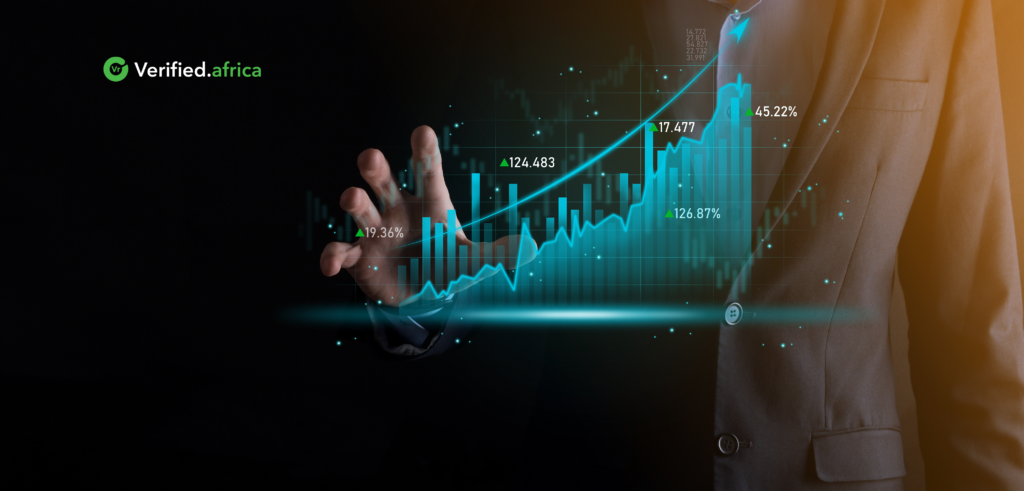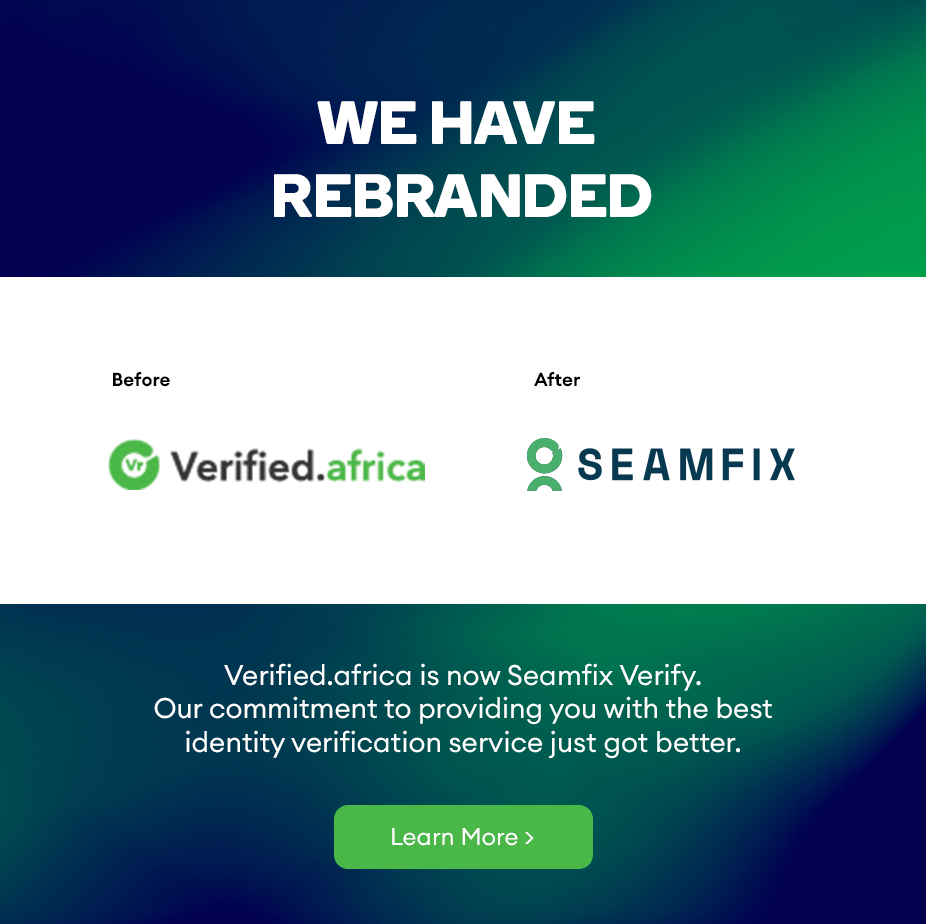Nigeria’s digital economy has been rapidly expanding in recent years, with the country currently ranking as the largest digital economy in Africa. As businesses and individuals continue to embrace digital technologies, there is a growing need for reliable and trustworthy services to ensure online safety and security.
Verified.africa, a Nigerian-based background check service provider, is playing a crucial role in supporting the country’s digital economy by offering solutions that help businesses and individuals make informed decisions based on accurate information. In this article, we’ll explore the impact of Nigeria’s digital economy and how Verified.africa’s background check services are contributing to its growth.
A digital economy is one that is based on digital solutions, technologies and transactions. Here, businesses and individuals use the internet and other digital channels to manufacture, disperse, and consume goods and services.
This includes activities such as e-commerce, online banking, digital marketing, and telecommuting. In a digital economy, technology is used to eliminate redundancies, streamline processes, increase productivity, and create new business models that were not possible in the past. The growth of digital economies has been fueled by advancements in technology, increased internet penetration, and changing consumer behaviour, among other important factors.
In Nigeria, businesses and individuals have gradually adapted to the digitalised methods of managing their processes more effectively. Agency banking has made it easy for conventional market sellers and distributors, to send and receive money seamlessly.
Companies like Opay, Palmpay and Eyowo have equally built trust in their customers through their efficient banking platforms that enable instant transaction notifications. This has helped to mitigate the naira scarcity and mobile banking issues in Nigeria.
With the adoption of digitalised processes, recruiters, housing agents, medical associations, financial institutions and other industries, are able to vet their applicants, candidates and potential customers against their presented identities.
To go even further, they are able to easily conduct background checks on said individuals who stand to gain value from the institutions.
Background checks are crucial for every formal business because of the increasing rate of fraud and malicious activities in the digital space. As much as a digital economy has its advantages, the disadvantages could have ripple effects that render victims helpless at the end of the day. Here is how Verified.africa is helping bridge the gap in Nigeria’s digital economy:
Businesses and individuals often interact with their consumers because those consumers are needed for the services to be used successfully. For example, a real estate agent who is seeking tenants to occupy a housing structure will connect with house seekers who are potential residents of that neighbourhood.
A recruiter who needs to close out a crucial role will connect with job seekers and unemployed people who are potential employees of the company. An institution that manages people’s assets and money will connect with individuals who need their belongings protected securely. What do all of these have in common? They are working with people.
This means that invariably, the companies will run background checks on individuals that they have connected with, and are fit for the request or service that is being provided. A background check is an investigation into a person’s criminal, financial, and personal history. It is commonly conducted by employers, landlords, and other organisations to verify the information provided by an individual and ensure that they are suitable for a particular position or activity.
Verified.africa enables businesses to participate in a digital economy with our identity verification and background check services. Conducting ID verification and background checks is less tedious and produces accurate results with Verified.africa.
Verified.africa Currently Offers Five Services for Background Check Solutions
- Address Verification
- Guarantor Verification
- Identity Verification
- Academic History
- Criminal Records
Each of these offerings can be used by businesses and individuals to reduce the risks associated with the digitalisation of the economy in Nigeria, and by extension, the world.
Address Verification
Address verification is a crucial component of a background check. It involves confirming the accuracy of an individual’s reported address. This process typically involves verifying the person’s current and past addresses through official records, such as utility bills or government documents.
Address verification is important for many purposes, including background checks for employment or rental applications, as it can help to confirm an individual’s identity and ensure that they are who they claim to be. It is also an essential step in maintaining the accuracy and integrity of important records, such as credit reports or criminal history reports. Read more about address verification.
Guarantor Verification
Guarantor verification is an aspect of a background check that involves vetting an individual’s financial stability and capability after they have agreed to be the guarantor of a person (applicant, candidate, etc). This is often required when someone is applying for a loan, seeking a house or even applying for a job. This impacts the digital economy by eradicating redundant processes associated with verifying a person’s credibility as a guarantor.
Guarantor verification typically involves verifying the guarantor’s employment, income, credit history, and other financial information, as well as their identity through official documents. This helps to ensure that the guarantor is a dependable, principled and trustworthy person who is able to fulfil their obligations in the event that the primary borrower defaults. It is an important step in minimising financial risk and protecting the interests of all parties involved. Read more about guarantor verification.
Identity Verification
Identity verification is a process that involves confirming the identity of an individual through official documents or other means. This process is often used to ensure that a person is who they claim to be and is essential for various purposes, such as opening a bank account, applying for a loan, or conducting online transactions.
Identity verification typically involves verifying the individual’s name, date of birth, address, and other identifying information through official documents such as a driver’s licence, VNIN, passport, or birth certificate. ID verification is important in the digital economy because it eliminates the possibility of identity theft, dual identity and other fraudulent activities. This process is also known as KYC (Know Your Customer/Client). Read more about identity verification.
Academic History
Academic history verification involves confirming the validity and originality of a person’s academic records, such as transcripts, certificates or diplomas. This process is typically used by employers, educational institutions, or government agencies to ensure that the individual’s education credentials are valid and reliable.
Academic record verification typically involves contacting the relevant educational institutions to verify the individual’s academic records, including the degrees earned, courses taken, and grades received. It may also involve checking for inconsistencies in the records, such as forged transcripts, signatures or falsified results.
Criminal Records
Criminal record verification is aimed at checking an individual’s criminal history to determine if they have been convicted of any crimes. The process is used by employers, landlords and other organisations to assess an individual’s suitability for a particular position or activity, especially those that involve high levels of trust or responsibility.
Criminal record verification typically involves searching local, state, and federal criminal databases, as well as other public records, to obtain information about any past criminal convictions or charges. The goal of criminal record verification is to identify any potential risks or concerns related to the individual’s criminal history and to ensure the safety and security of employees, customers, or stakeholders. It is an important step in mitigating risk and protecting against liability for organisations.
Each of these components of background checks contributes to the growth and development of the digital economy through technology. The technology used to carry out all these activities will save costs associated with commuting from one place to another, reduce stress and uncertainty in business dealings and produce the best outcomes or candidates for the job and service.
Nigeria’s digital economy has witnessed tremendous growth in recent years, and Verified.africa has been a key player in supporting this growth through our background check services. The adoption of digitalised processes by businesses and individuals has made background checks crucial, and Verified.africa is bridging the gap in Nigeria’s digital economy by providing reliable and trustworthy services that ensure online safety and security.
With Verified.africa’s background check solutions, businesses and individuals can reduce risks associated with digital transactions, and this will ultimately contribute to the growth of Nigeria’s digital economy and the world at large.


